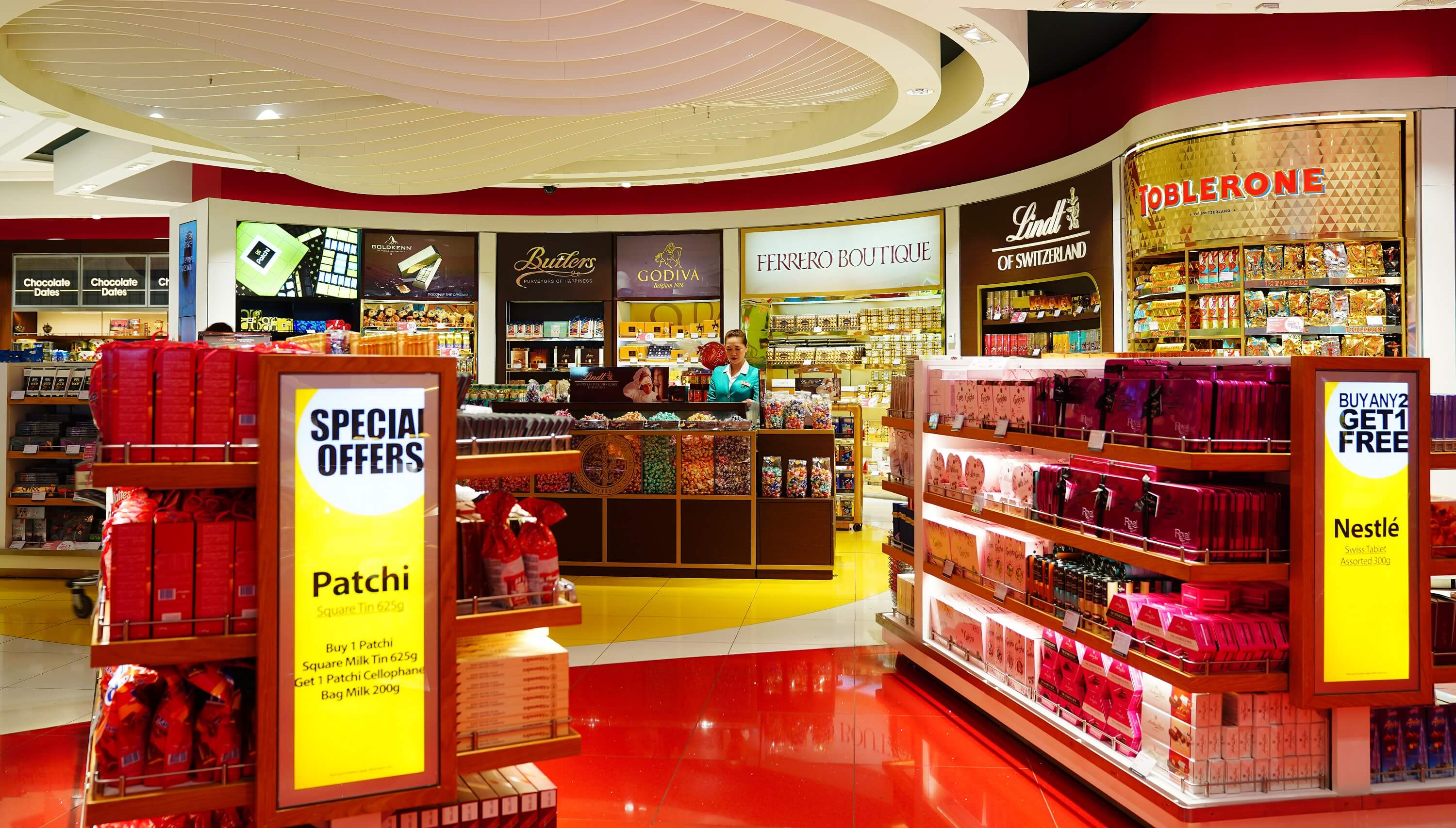Gifting and sense of place continue to play key roles in confectionery, says leading retailers

Gifting and sense of place – along with an increasing awareness of health and wellness issues – continue to play key roles in the confectionery category in travel retail in the Middle East, according to two leading retailers in the region.
Sharon Beecham, Senior Vice President – Purchasing at Dubai Duty Free and Tirthaa Chatterjee, Lagardère Travel Retail Middle East’s Category Manager Food, share their thoughts on key trends.
According to Beecham, Dubai Duty Free’s confectionery category “is predominantly driven by gifting, which makes up 72% of total confectionery sales.” She says most gifting choices revolve around family get-togethers and celebrations, and notes that a “universal consensus among shoppers that buying brands and products that are perceived as valuable gifts on the receiving side is a priority for shoppers.”
Self-indulgence represents just under 5% of sales. “Today’s consumers are well-informed about health and wellness and their shopping is driven by those choices,” Beecham says. “However, when traveling, shoppers usually have different priorities when it comes to consumption or self-indulgence. It is like they have an on/off switch button and use travel as an opportunity to make it a cheat day for self-treating and put aside usual healthy routines.”
She cites research suggesting that confectionery is directly linked to sensory feelings, a good mood that is hard to resist, and notes that health and wellness in confectionery “have not made similar progress in travel retail as they have in the domestic market.”
According to Chatterjee, the impact on confectionery category demand resulting from the growing health and wellness subcategory in food is limited, with the category offering alternatives to mainstream chocolate products. “This could be one of the reasons behind why these two categories can sustain value without impacting each other,” she says. “A customer looking to buy differential/ healthy products opts for chocolate-coated dates and nuts. This is growing the category instead of cannibalizing the sales of confectionery.”
According to Dubai Duty Free, the confectionery category is predominantly driven by gifting, which makes up 72% of total confectionery sales
Digital media and technology
Considering the role of social media and digital technology in the marketing and sale of confectionery products, Beecham describes social media as an “important tool to connect retailers with travelers on an emotional level, while at the same time building awareness and trust before passengers are exposed to travel and shopping experiences.”
Dubai Duty Free uses social media to showcase exclusive product launches, high-profile and seasonal activations, adding links to the retailer’s website page so shoppers can make online purchases.
“We have witnessed customers who are more inclined to shop for Beauty, Electronics, and Liquor products online, while they prefer a personal shopping experience when it comes to confectionery and food purchases,” Becham adds. “Social media then serves as a powerful tool to showcase the offers and raise awareness about the product range we are offering.”
Chatterjee highlights how brands are engaging on social media platforms to drive sales by focusing on travel retail exclusives, differential products and packaging. “The most highlighted category is gifting,” she says.
“Brands are still learning about conversion rates from social media imprint. The use of digital marketing is an emerging trend and brands are opting it to have more interactions and creating value for the category with higher customer engagement, especially with millennials.”
)
)



)
)
)
)
)
)
)
)
)
)
)
)
)
)